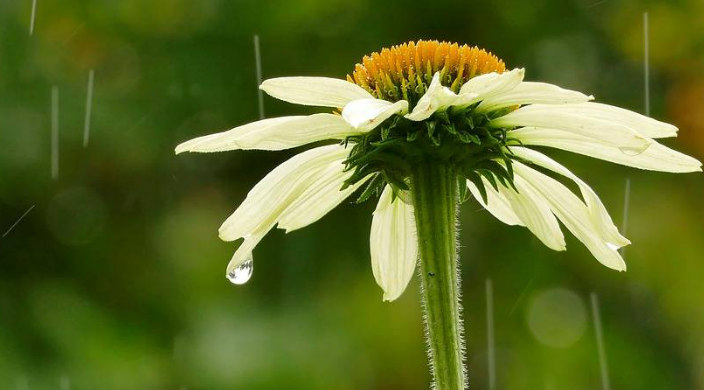
I am haunted by Leonard Cohen’s “Who By Fire,” a radical revision of the Un’taneh Tokef prayer we sing during the High Holidays. Who will we lose? Cohen’s lyrics ask:
And who by fire, who by water?
Who in the sunshine, who in the night time?
Who by high ordeal, who by common trial?
Who in your merry, merry month of May?
Who by very slow decay?
And who, who shall I say is calling?
We live, now, in the midst of fear, and loss. But when I look ahead, the month of May brings me hope for recovery and renewal.
“Renewal.” Looking at something old in “novel” ways. So do we see everything around us through a coronavirus-colored lens – and we search the past for clues about what is to come.
This month, I am using the rhyme about April showers and May flowers as an occasion for hope. Without effort, I see every holiday in May as part of this unfolding pandemic.
May 1: May Day
An ancient rite, this day has since become International Workers’ Day. What better time to remember workers who pick fruit and ship food and handle groceries, who move goods and endanger themselves?
This is a time of dependency, when sometimes-invisible cords of connection become obvious.
May 5: Cinco de Mayo
Originally a celebration of a victory in battle of a small force over a larger one, this holiday has come to be a celebration of Mexican culture (though parades are unlikely this year).
In recognizing one particular culture, we may uncover our shared humanity. And during this time of isolation and separation, may doing so serve as a reminder that in global crisis, disease knows no border.
May 11-12: Lag Ba’Omer
Lag Ba’Omer is a relatively obscure Jewish celebration, unmentioned until the 12th century. Leviticus instructs us to “count” the Omer, the daily grain offering linking the barley harvest of Passover to the wheat harvest of Shavuot.
This 49-day period is a time of semi-mourning when Jews traditionally do not get married, hold celebrations, or cut their hair – except on Lag B’Omer.
Why? One explanation harks back to a plague in the second century, which killed 24,000 of Rabbi Akiva’s students. The plague “broke” on Lag Ba’Omer; the holiday is observed today with bonfires, parades, meals, songs, weddings, and haircuts.
A plague once ended on this day – and may it be the case for us, this year, in the midst of this pandemic.
May 25: U.S. Memorial Day
Like July 4 and Labor Day, this holiday has become one of trips, beaches, and barbecues, a celebration of summer – but it is meant to be a serious remembrance of those lost serving in the military.
That meaning should not be diluted. Perhaps, though, this year we can stretch the meaning a bit. Meaning no disrespect to real soldiers, many others are also on the front lines of the current fight.
This year, perhaps we can also remember nurses and aides, physicians and health care workers, police and firefighters lost in our mutual defense.
May 28-29: Shavuot
Originally agricultural, Shavuot became the anniversary of our receiving the Ten Commandments on Sinai, a celebration of Revelation. Jewish tradition sees this experience as utterly unique, with the entire Torah – both written tradition and oral search for meaning – given in that time, at that place.
Indeed, Shavuot is about Torah – but over time, Torah has also come to be associated with reason, wisdom, natural law, and truth, as discussed in Christine Hayes’s What’s Divine about Divine Law? This Shavuot, in addition to traditional means of observance, I will also focus on science and medicine – facts over fantasy, knowledge over fear and false fixes, connection over narcissism.
I believe Redemption comes from Revelation – that along with prayers must be tests and treatments. If Torah is wisdom – in harmony with nature, a gift of love – then we know how to search for answers, love each other, and find our way through this to the world on the other side.
There are other holidays in May, too – for example, Eat What You Want Day, Clean Up Your Room Day, and Birth Mothers’ Day, to name a few. I’m not sure exactly how to relate each of these to our current condition, but unlike the warning at the end of some commercials, I welcome you to try this at home!
Whatever the next month(s) bring, may you be healthy and well. May we see each other again soon – up close, and personal, but safely. B’karov b’yameinu. Speedily, and in our day.
Related Posts

Breathe Bravely

The Importance of Storytelling


